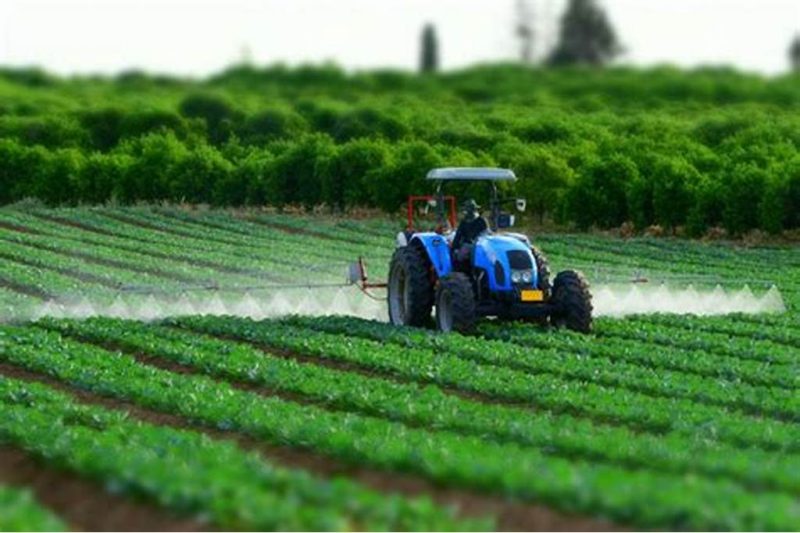Agriculture remains a vital sector in Nigeria’s economy, providing employment for over 70% of the rural population and contributing significantly to the country’s Gross Domestic Product (GDP). Despite its importance, the sector faces several legal challenges that hinder its full potential. Understanding these legal issues is key to unlocking the opportunities within the agricultural industry.
1. Land Ownership and Land Use Act of 1978
The Land Use Act of 1978 is one of the most significant laws governing land ownership in Nigeria. Under this Act, all land in the country is vested in the hands of the state government. While the law was designed to simplify land ownership, it has created significant challenges, particularly for smallholder farmers.
Farmers often struggle to secure land titles due to bureaucratic processes, corruption, and high costs associated with land acquisition. The lack of clear ownership discourages investment and makes it difficult for farmers to access credit facilities, as land titles are often required as collateral.
2. Inadequate Regulatory Framework for Agricultural Financing
Access to finance is critical for agricultural development, but legal barriers often prevent farmers from securing loans. The Central Bank of Nigeria (CBN) has introduced various schemes, such as the Agricultural Credit Guarantee Scheme Fund (ACGSF) established in 1977, to support farmers. However, the implementation of these initiatives is hindered by weak enforcement, lack of awareness among farmers, and complex application procedures.
The Banks and Other Financial Institutions Act (BOFIA) of 1991 also affects agricultural lending, as most commercial banks prioritize less risky sectors, leaving agriculture underfunded
3. Intellectual Property Rights and Seed Laws
The Seed Act of 1992 regulates the production and marketing of seeds in Nigeria. However, the enforcement of this law is weak, leading to the proliferation of substandard seeds in the market. Farmers often purchase fake or poor-quality seeds, resulting in low yields and financial losses.
Moreover, intellectual property rights (IPR) laws regarding agricultural innovations remain underdeveloped. Farmers and local seed producers lack adequate protection, discouraging research and development in the sector.
4. Environmental Laws and Compliance Issues
Environmental degradation, deforestation, and climate change are major threats to agriculture in Nigeria. Laws such as the Environmental Impact Assessment Act of 1992 are in place to ensure sustainable agricultural practices, but enforcement remains a challenge.
Many farmers are unaware of these regulations or lack the resources to comply with them. For example, the indiscriminate use of pesticides and fertilizers often violates environmental laws, further exacerbating soil degradation and water pollution.
5. Agricultural Export Regulations
Nigeria’s agricultural export potential is often limited by stringent regulatory requirements and outdated laws. The Export (Prohibition) Act of 1989 bans the export of certain agricultural products, while other regulations, such as the Nigerian Export Promotion Council Act of 1976, lack proper implementation.
Farmers and exporters frequently face challenges such as high export tariffs, inconsistent policies, and delays at ports. These issues reduce Nigeria’s competitiveness in the global market.
6. Labor Laws and Farmer Rights
The Nigerian Labor Act of 1974 governs employment in the agricultural sector, but it often fails to address the unique needs of farm workers. Many smallholder farmers are unaware of their rights, leading to exploitation and poor working conditions.
Child labor is another pressing issue in agriculture, despite being prohibited under the Child Rights Act of 2003. Enforcement of this law is weak, especially in rural areas where children are often involved in farming activities instead of attending school.
7. Inconsistent Government Policies
Inconsistencies in government policies and laws significantly impact the agricultural sector. For instance, the frequent bans and unbans of food imports and exports create uncertainty for farmers and investors. Policies like the National Agricultural Policy of 2001 aim to address these issues but often lack proper implementation due to political interference and poor coordination among government agencies.
CONCLUSION
The Nigerian agriculture sector holds immense potential, but legal challenges continue to stifle its growth. Addressing these challenges requires comprehensive legal reforms, improved enforcement mechanisms, and greater awareness among stakeholders. By simplifying land acquisition processes, strengthening financial regulations, and enforcing environmental and labor laws, Nigeria can create a more robust agricultural sector that benefits farmers and contributes to economic development.
Efforts to modernize agricultural laws must be backed by political will and collaboration between government agencies, farmers, and the private sector. Only then can Nigeria fully harness the potential of its agricultural industry.








